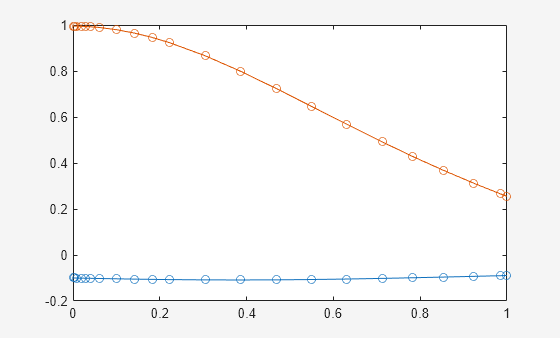daeFunction
Convert system of differential algebraic equations to MATLAB function handle suitable for ode15i
Description
f = daeFunction(___,Name=Value)Name=Value
arguments.
Examples
Input Arguments
Name-Value Arguments
Output Arguments
Version History
Introduced in R2014b
